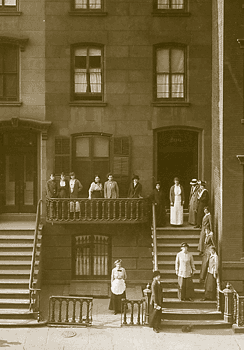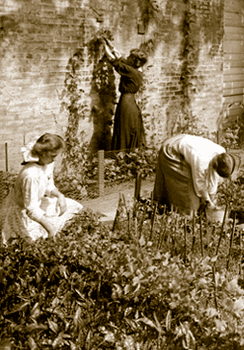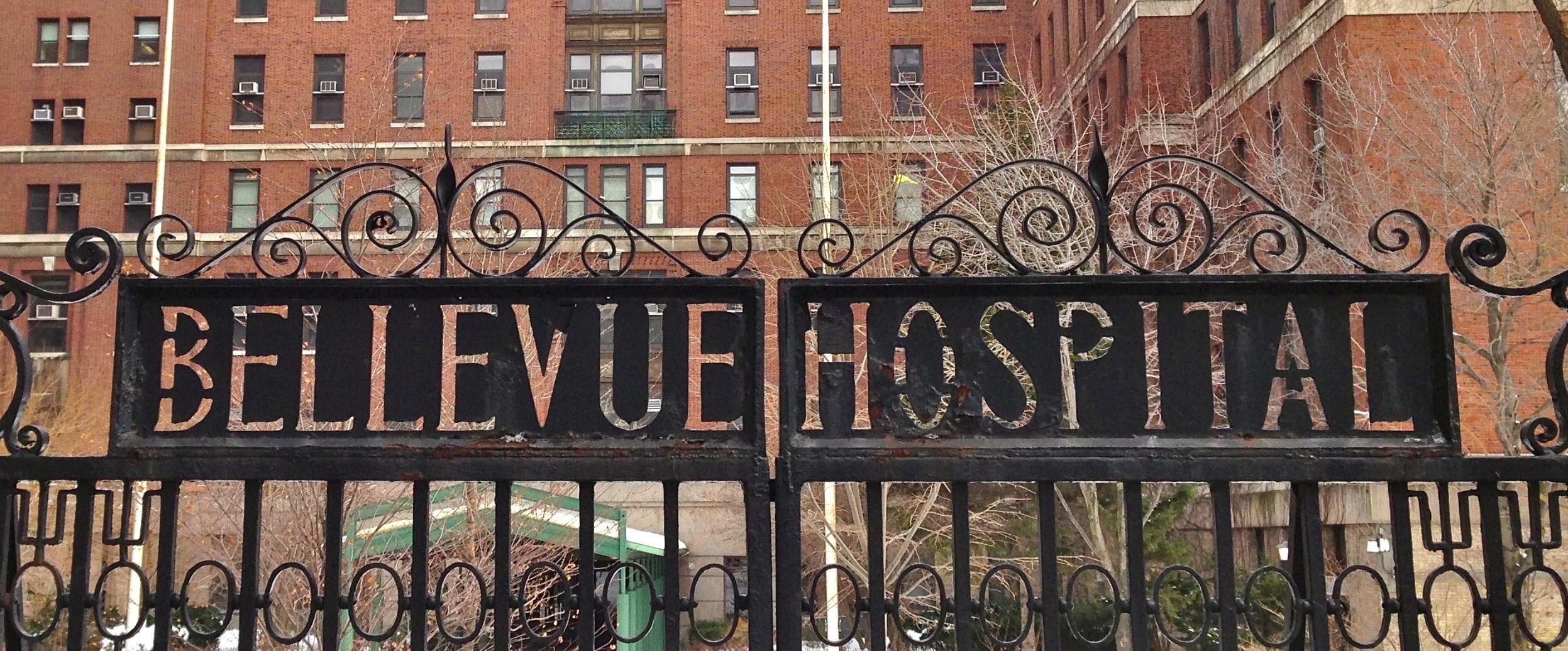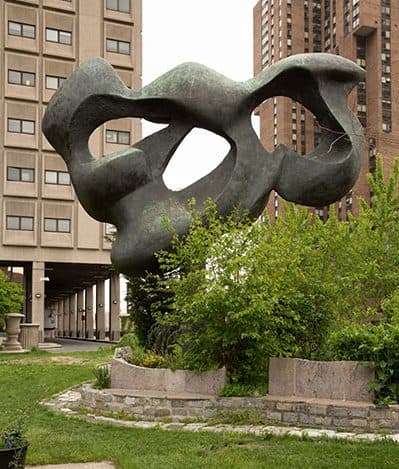Innovative Beginnings: 1906-1940
The Auxiliary was founded in 1906 when a group of socially conscious women organized some assistance for the Bellevue Tuberculosis Clinic. They started a Day Camp in 1908 on the old ferryboat “Southfield”, anchored off the Bellevue Hospital grounds. This made it possible for patients who were not eligible for sanatorium care to spend their days in the open air. In 1911, a Settlement House at 206 East 30th Street provided a health and welfare center for girls and women afflicted with tuberculosis who could not otherwise be adequately cared for.
Simultaneously, a group of philanthropic-minded women formed the Convalescent Relief Committee to assist with “finding out the needs and supplying the appropriate relief to those among the patients of Bellevue Hospital who, by reasons of poverty, continued weakness, lack of home and family, or other causes stand in active need of a friend”. Their mission was to provide direct enhancement to every patient's well-being, care and convalescence. Miss Mary Wadley, a graduate of the Bellevue School of Nursing, class of 1885, was hired to provide assistance to the needy as an organized supplementary department. This project was the first that the Auxiliary financed and supported.
By 1907 a third group, The Synagogue Committee formed. The first volunteer project of the newly formed Free Synagogue was under the direction of Rabbi Stephen Wise and his wife, Louise. Their mission was to translate for the Yiddish-speaking patients and provide for their social service needs.
The original founding groups were devoted and capable, and as the scope of their works evolved, the Social Service initiative grew with it. The range of Auxiliary services extended steadily until it covered nearly every part of the Hospital, both wards and clinics. A major contributor to their success was the overwhelming support provided by volunteers. The first Volunteer Service was organized in 1916. During the war years the Office of Civilian Defense referred volunteers to Bellevue in such large numbers that it was necessary to open a special office to supervise them.




